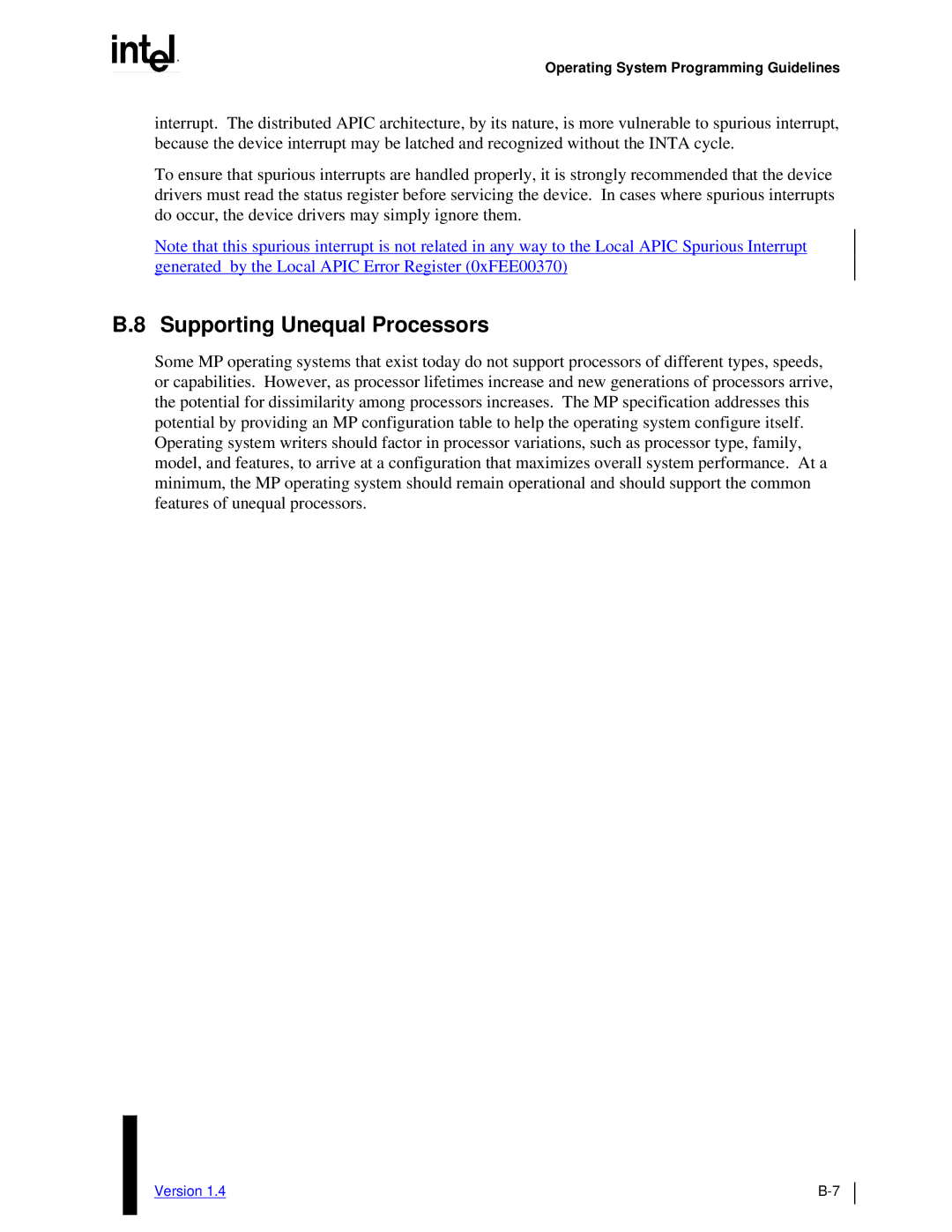
Operating System Programming Guidelines
interrupt. The distributed APIC architecture, by its nature, is more vulnerable to spurious interrupt, because the device interrupt may be latched and recognized without the INTA cycle.
To ensure that spurious interrupts are handled properly, it is strongly recommended that the device drivers must read the status register before servicing the device. In cases where spurious interrupts do occur, the device drivers may simply ignore them.
Note that this spurious interrupt is not related in any way to the Local APIC Spurious Interrupt generated by the Local APIC Error Register (0xFEE00370)
B.8 Supporting Unequal Processors
Some MP operating systems that exist today do not support processors of different types, speeds, or capabilities. However, as processor lifetimes increase and new generations of processors arrive, the potential for dissimilarity among processors increases. The MP specification addresses this potential by providing an MP configuration table to help the operating system configure itself. Operating system writers should factor in processor variations, such as processor type, family, model, and features, to arrive at a configuration that maximizes overall system performance. At a minimum, the MP operating system should remain operational and should support the common features of unequal processors.
Version 1.4 |
